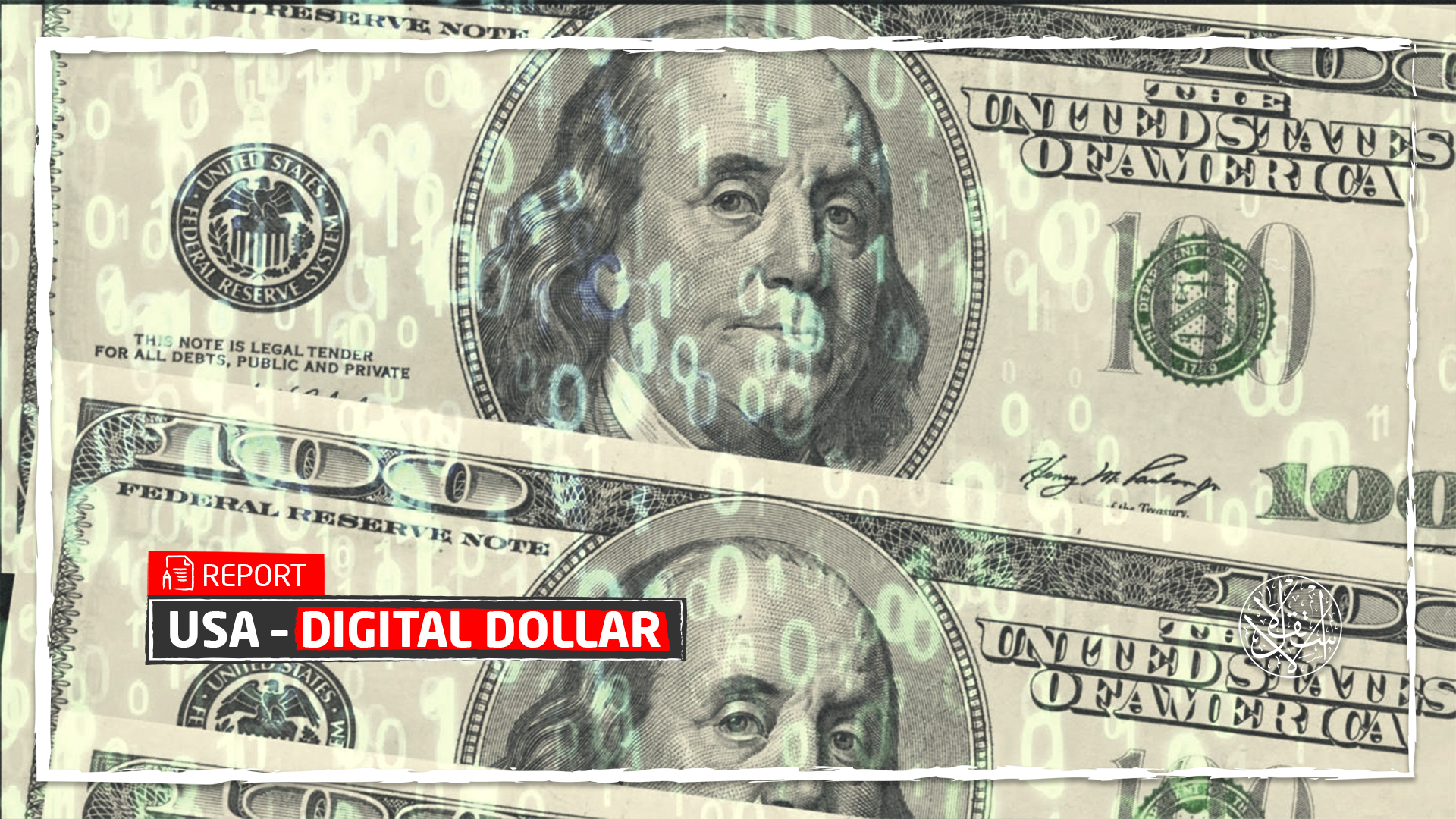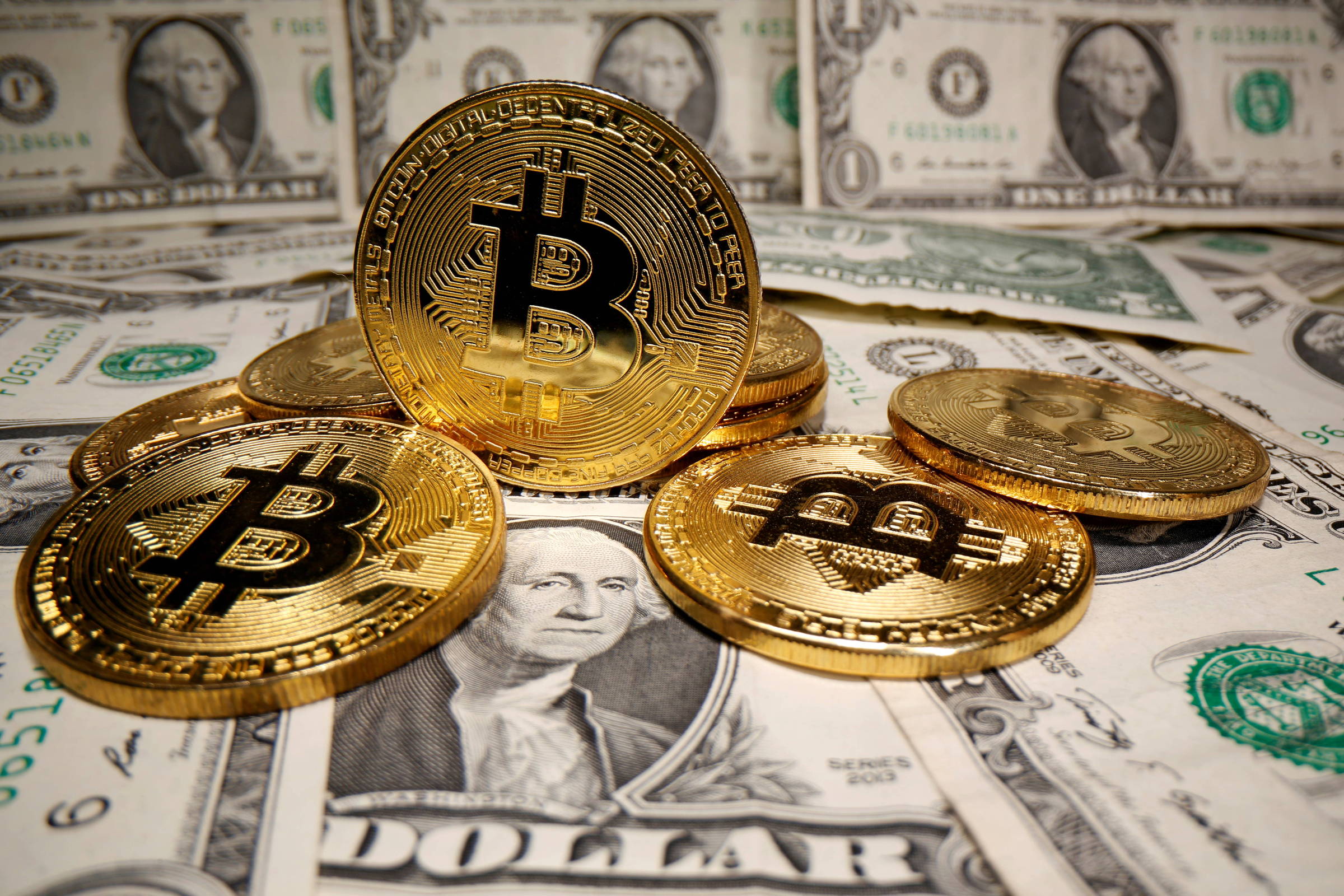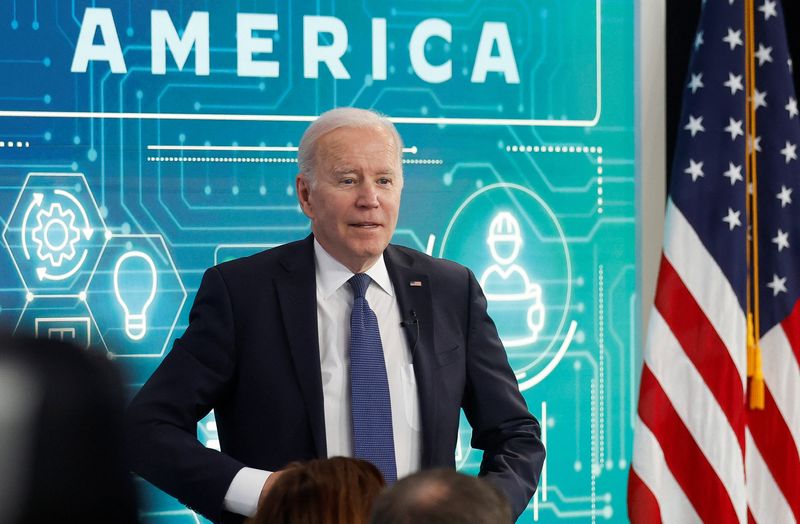The Digital Dollar – A New American Dominance on the Global Financial System or on the Cryptocurrency Sector?

US President Joe Biden's signing of an executive order late last week directing the federal government to consider the potential effects of creating a digital dollar has raised many thesis and questions about the advantages and risks of switching to digital currencies, and its impact on the United States, whose currency dominates the financial sector in the world.
The difference between the cryptocurrencies currently in circulation and the digital dollar, is that the latter will be issued by the US Central Bank (the Federal Reserve), which will give it greater reliability as it is issued by a central government agency that controls the most influential and traded currencies in the world, according to media reports.
Observers believe that the US move will reshape how money is transferred and used around the world. However, others argue that there are many implications, risks, and questions that come to mind from the launch of the digital dollar.
Digitizing the US Dollar
On March 09, 2022, US President Joe Biden issued an executive order to prioritize the study of the potential advantages and risks of creating a US government digital currency called the Digital Dollar.
According to a White House statement, Biden has ordered US government agencies to research and develop potential common cryptocurrencies in the United States as part of a widespread effort to impose controls on the cryptocurrency sector, as a result of the global demand for it, its massive appreciation and the increasing use of digital payments.
According to a study conducted by the Pew Research Center, about 16% of American adults (40 million people) have invested in, traded or used cryptocurrencies.
A new study conducted by the Harris Poll at the end of February, on behalf of Protocol, shows that “three out of 10 American adults are now trading cryptocurrency.”
In turn, the Blockchain Association, which is made up of 80 member firms, welcomed the US move in an official statement, saying: “We welcome this approach and are ready to collaborate with agencies on behalf of the industry.”
It is noteworthy that digital currencies backed by central banks are one of the most exciting technologies in the recent period and promise to provide a digital way to use the local currencies of countries very easily and are available even for people who lack access to financial services of banks.
Following Biden's March 09 executive order, bitcoin registered a massive 9% increase to around $42,000, according to global crypto data regulator CoinMatrix, which also indicated a sharp rise in the value of Ethereum.
Analysts view the long-awaited executive order as a stark acknowledgment of the growing importance of cryptocurrencies and their potential consequences for the United States and global financial systems.
Global Dominance
As for the impact of this decision on the global economy, some experts believe that the digital dollar may harm the economies of some countries by undermining their local currencies if the citizens of these countries prefer to use the digital dollar instead of the local currency.
In this context, the Agence France-Presse published on March 09 a report entitled “Will the US dollar change and with it the global financial system?”
“The digital dollar project is part of a large-scale attack that Joe Biden wants to launch to put controls on the highly volatile private cryptocurrency sector that is by nature decentralized, the most famous of which is Bitcoin,” the report stated .
“If this project succeeds, it could revolutionize the global financial system dominated by the dollar,” it added.
“Among the priorities identified is that the executive order aims to enhance US leadership in technological and economic competitiveness, with the goal of strengthening its leadership in the global financial system,” the report explained.
On its part, the Global Times indicated in a report on March 10 that “the emergence of cryptocurrencies may constitute competition to the US dollar, but it will not necessarily undermine US dominance of the global financial system.”
“Global economic development has reached a point where the United States does not enjoy overwhelming advantages in global trade, which justifies why the United States needs to step up research and development efforts in emerging areas such as digital currency, but this does not necessarily mean that it can extend its dollar dominance in the cryptocurrency sector,” it explained.
“For the United States, it is not bad to join the cryptocurrency race, as this may allow it to enhance cooperation with other countries when it comes to government supervision of digital assets,” it said.
“If the US interest in the research and development of a government-backed digital currency is aimed at confronting or punishing others, market risks will increase, which is detrimental to the state of the dollar,” the newspaper noted.
It is noteworthy that Bitcoin and the rest of the other cryptocurrencies have become a financial industry that exceeded $3 trillion in November 2021.

Advantages and Risks
Despite the difference in its operating mechanisms compared to cryptocurrencies, Bitcoin, for example, the digital dollar appears to be a competitor to cryptocurrencies, and a mortal enemy of money transfer companies.
Writer Noah Smith explained, in an article in Bloomberg on February 25, that “there are fundamental differences between Bitcoin and the digital dollar (Fedcoin).”
“This does not preclude that the two currencies will provide similar services, which is the transfer of funds at a cheap cost. Here it emerges that the digital dollar may be a competitor to Bitcoin, but it is an enemy for money transfer companies such as MasterCard and others,” he added.
“A digital dollar will be equal in value to a paper dollar, which means one digital dollar will be equal to a paper dollar, this is a different reality from other virtual currencies that have highly volatile valuations, sometimes high and sometimes low,” according to the Wall Street Journal.
The newspaper added in a report on March 10 that “the digital dollar will be characterized by universality and ease of access, as it can be used both in domestic and cross-border commercial transactions.”
“The circulation of the digital dollar will not require a financial intermediary between individuals or across countries, as it will be done simply through an application that is downloaded to smartphones, through this application, cryptocurrencies can easily be transferred from one person to another, which means easier and quicker trading,” according to the report.
A digital dollar can bring a range of advantages as well as risks; advocates of the idea say a digital dollar will make moving money easier and less expensive, transfer and transaction fees will be eliminated and there will be no need for intermediaries, as it will also facilitate the delivery of funds to people without bank accounts, and provide the government with an efficient way to distribute financial aid.
“Moreover, advocates argue that such a digital currency can help improve the effectiveness of monetary policy, by allowing the central bank to change interest rates directly on accounts that hold government currency,” the report added.
On the other hand, skeptics believe that issuing the digital dollar will harm the traditional banking system, and may put it into a major crisis if people withdraw their money from banks, mutual funds, stocks and other investments, and replace it with a super safe currency issued by the Federal Reserve.
Skeptics also argue that issuing a digital dollar would first need to address privacy issues, since the digital currency federal system would theoretically allow the central bank to know what each user of the currency is doing.
“Moreover, there are still concerns that the digital currency will be subject to hacking attacks or that some will use the digital currency for purposes criminalized by law,” the report noted.
While some Republicans are eager for the Federal Reserve to embrace innovative technology, others have expressed concern about the central bank expanding its footprint and competing with private banks.
In addition, some progressive Democrats such as Senate Banking Committee Chairman Sherrod Brown support the digital dollar project, but other Democrats have raised concerns that it could be used for illegal purposes.

On January 20, the US Federal Reserve released a study on the digital dollar, explaining the potential advantages and risks of fully digitizing the US dollar; this would be the first step in building momentum for legislation designing a digital currency system.
The Federal Reserve also described the potential introduction of the digital dollar as a step that could have far-reaching consequences for banks and other financial companies as well as for the central bank itself, according to what Reuters reported in a report on January 24.
“It is worth noting that even if Congress were able to approve and pass legislation this year, the introduction of the digital dollar will require a long trial and implementation phase that may reach two years,” the report emphasized.
It is noteworthy that 90 countries—including China—are exploring the mechanism of developing such digital assets, while nine central banks have launched cryptocurrencies.
The foregoing prompted some in Washington, the world's largest economy, to worry that the dollar might lose some of its hegemony to Beijing, and to start studying the possibility of digitizing its dollar, which dominates global trade and savings, according to Reuters.
Sources
- Biden orders government to study digital dollar, other cryptocurrency risks
- Money and Payments: The U.S. Dollar in the Age of Digital Transformation [Study]
- Should the U.S. Issue a Digital Dollar, Which Could Compete With Crypto Assets?
- GT Voice: Digital dollar coming, urged not to aim at hegemony
- Biden cautiously seeks to launch a digital dollar [Arabic]
- A digital dollar is years away as U.S. Fed kicks issue to Congress [Analysis]
- Fed's Digital Dollar Would Look Nothing Like Bitcoin
- 16% of Americans say they have ever invested in, traded or used cryptocurrency [Study]
- A Growing Number of U.S. Adults Invest in Cryptocurrency Despite Risks [Study]












